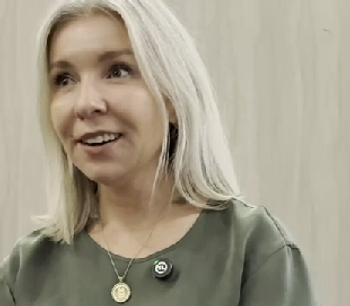
Psychiatric and Personal Reflections on Abortion
What do we know about the psychiatric implications of having an abortion and not having access to such services? And what are the medical ethics involved?
PSYCHIATRIC VIEWS ON THE DAILY NEWS
Of course, I could never have had an
My direct personal and professional involvement with abortion, limited as it is, goes back more than 50 years ago. While I was in medical school, my wife became pregnant, a pregnancy not planned. Abortion never entered my mind and was never brought up by my wife, nor anyone else. I then had the good fortune to be the primary caregiver of our darling daughter during the day of her first year of life while I was home doing my research project.
A couple of years later, I was in my second year of psychiatric residency training, which was a year before Roe v. Wade. I saw a number of women seeking an abortion, which could be obtained if it was psychiatrically risky to continue the pregnancy, or something like that, as I cannot recall the detailed criteria. With supervision, I approved them all, although I never knew the outcome of any of these decisions. I felt helpful and believed that this was the right decision all around, but with some guilt about the potential child.
I have tried to keep up with the recent media discussions about our abortion laws and the possibility of change in some states. However, by far the most informative and moving article that I read was by
That article led me to double-check what our professional American Psychiatric Association organizations have said about abortion. The last action that I found for the APA was in May 2018 and was titled a “
The longer
Both of these research findings regarding the woman and the child helped assuage my earlier residency guilt. The American Psychological Association policy comes out similar to that of psychiatry, and includes their subsequent and ongoing advocacy and legal action on abortion.
Out of many controversial Supreme Court decisions over the past 50 years, this one seems distinct in its viability. Why might that be? It is literally a life and death issue. However, any changes in Roe v. Wade can be a precedent to reconsider other decisions.
For some, this abortion decision is simply a yes or no. However, for me as a psychiatrist and as a man, it is not. All of these experiences and considerations leaves me with 8 tentative—indeed very tentative—conclusions as to what I currently think may be the major mental health implications for mother and child:
- Do what is practically and psychological possible to not develop an unwanted pregnancy.
- There are invariably complex psychological reasons to have or not have an abortion, and at times of unresolved ambivalence, therapeutic discussion may be indicated.
- It is virtually impossible to compare the outcome of the abortion choice with the path not taken, so it is important to try to come to peace with the final personal decision.
- Having inadequate and difficult-to-access abortion services seems to be a sign of misogyny, and poor women will be the most affected.
- If our abortion laws are changed, they should be done very gradually and in a manner that allows some comparison with outcomes related to the prior law.
- As the Preamble and Section 7 of The Principles of Medical Ethics states about our responsibility to society, abortion is an ethical matter for us.
- Given the cracks occurring in Roe v. Wade, it seems that our professional societies’ views on abortion need updating.
- Our professional societies and ourselves need to educate the public about the mental health implications of abortion, especially in regards to children of unwanted pregnancies.
On Friday, the Supreme Court is supposed to meet to hold a preliminary vote on their decision. What will they—and we—say?
Dr Moffic is an award-winning psychiatrist who has specialized in the cultural and ethical aspects of psychiatry. A prolific writer and speaker, he received the one-time designation of Hero of Public Psychiatry from the Assembly of the American Psychiatric Association in 2002. He is an advocate for mental health issues relate to climate instability, burnout, Islamophobia, and anti-Semitism for a better world. He serves on the Editorial Board of Psychiatric TimesTM.
What do you think? Share your thoughts, comments, and feedback with PTEditor@mmhgroup.com.
Newsletter
Receive trusted psychiatric news, expert analysis, and clinical insights — subscribe today to support your practice and your patients.







